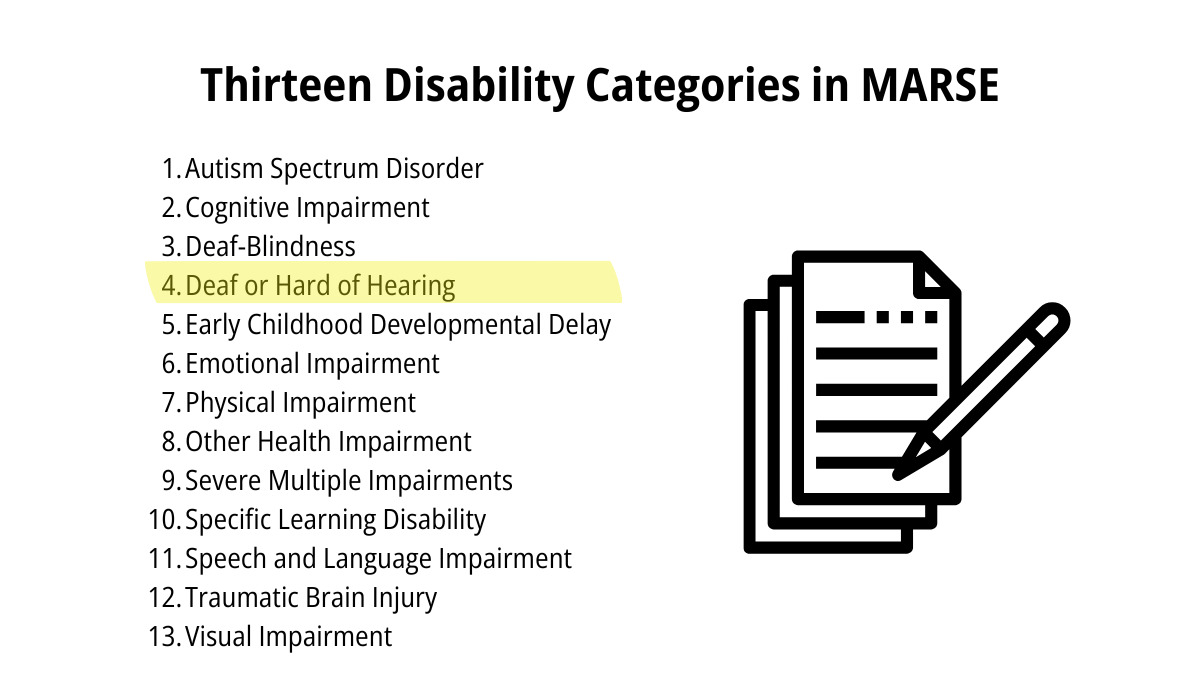Eligibility for Special Education under designation of Deaf or Hard of Hearing
The Michigan Administrative Rules for Special Education (MARSE) define eligibility for special education services within thirteen categories of disability.
- MARSE R 340.1707 Deaf or Hard of Hearing


